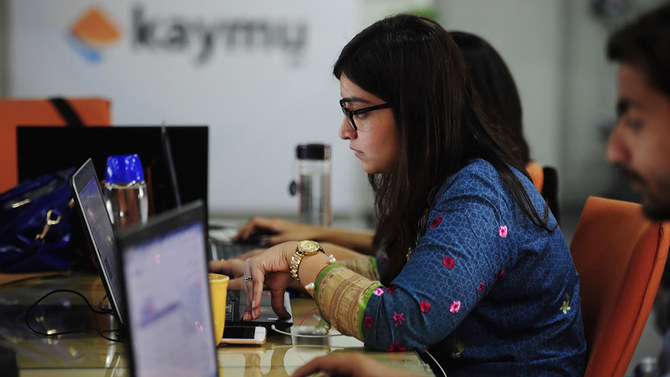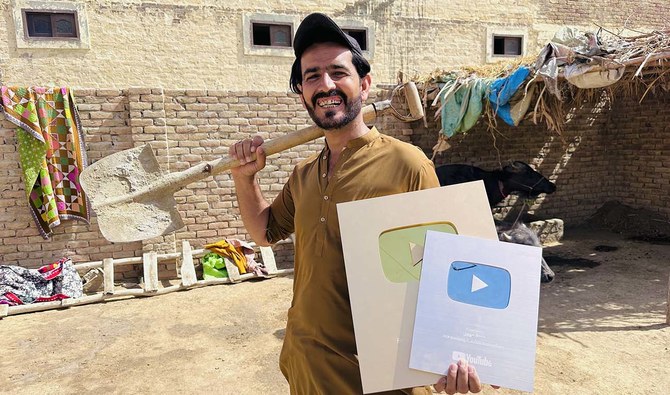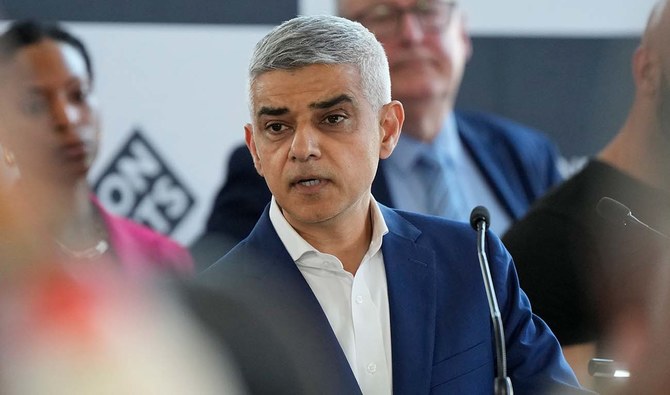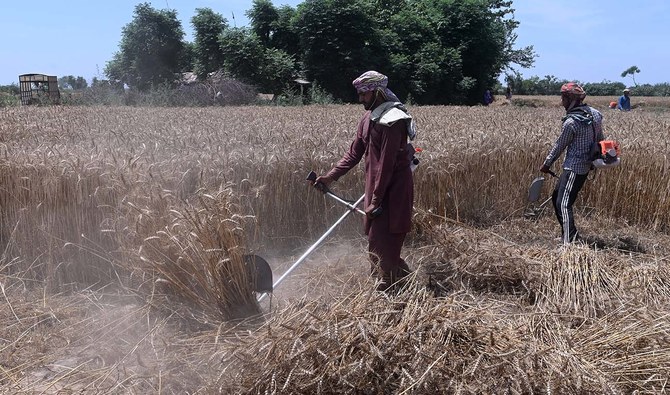KARACHI: In a significant development, Pakistan’s global Ease of Doing Business EoDB ranking improved by 28 slots landing the country among world’s top 10 business climate improvers.
The south Asian nation was ranked 136th in the index but jumped to 108 mainly due to enactment of regulations in six categories, according to the recent World Bank Group’s Doing Business 2020 study released on Thursday.
Prime Minister Imran Khan congratulated his team on this success and took to twitter saying, “I want to congratulate all the people in our govt. who worked hard to make this happen. But we still have a long way to go. InshaAllah before the end of 2020 Pakistan will become one of the top places for investment.”
“Pak achieves biggest improvement in its history in World Bank's EODB rankings. Over last decade Pak's ranking had slipped more than 50 places. Now we have improved 28 places - from 136 to 108”, Khan tweeted.
Abul Razzak Dawood, the de facto commerce minister of Pakistan, also termed the ranking improvement a proof of country’s commitment to improve business environment.
“Great news from World Bank. Pakistan's biggest jump ever. Up 28 places in Ease of Doing Business 2020 rankings. Proof of Pakistan's commitment to improve business environment and integration with world economy”, Dawood tweeted.
The other economies with the most notable improvement in Doing Business 2020 are Saudi Arabia, Jordan, Togo, Bahrain, Tajikistan, Kuwait, China, India and Nigeria. These countries implemented one-fifth of all the reforms recorded worldwide, according to the report.
The WB study is based on surveys carried out in the country’s two mega cities, Lahore and Karachi, based on findings from November 2018 to June 2019.
Pakistan made the approval process for obtaining a construction permit easier and faster in both Karachi and Lahore. In Karachi, the process was also made safer by ensuring that building quality inspections take place regularly.
Pakistan also eased the process for paying taxes by introducing online payment modules for value added taxes and corporate income taxes. The government also lowered the corporate income tax rate for the 2018 fiscal year.
This reduced the number of payments from 47 to 34 and the total number of hours required to comply with tax requirements per year from 294 to 283, the study says.
“This rise is significant and made possible by collective and coordinated actions of Federal Government and Provincial Governments of Sindh and Punjab over the past year,” said Illango Patchamuthu, World Bank Country Director for Pakistan.
“The accelerated reform agenda has many noteworthy features to improve quality of regulations, reduce time and streamline processes. This momentum needs to be sustained in the coming years for Pakistan to continue to make progress.” he added.
The country has made starting a business easier by expanding the functionalities of the online one-stop-shop. This reduced the number of procedures required to set up a business from 10 to five and improved the economy’s score for starting a business. Additionally, in Lahore, the Labor Department registration fee was abolished.
Pakistan continues to perform best on the protecting minority investors’ indicator, earning the maximum possible points on the extent of ownership and control index, which measures governance safeguards protecting shareholders from undue board control. Globally, Pakistan is in the top 30 economies on this measure.
Former chairman of the Board of Investment, Haroon Sharif, who spearheaded the ease of doing business reforms while talking to Arab News recently had predicted a 25-notch improvement in the EoDB ranking.
“Let’s hope that we do not lose this achievement in the celebrations only. It is time for the policymakers to seriously contemplate on developing a growth policy. The first lesson we learnt from this achievement is that difficult reforms are doable with visible political commitment, professional leadership and a good strategy,” Sharif told Arab News of Thursday.
The Ease of Doing Business index is a major tool used by international investors’ community to gauge the investment environment for investment making decisions in any country.
Pakistan climbs 28 slots on Ease of Doing Business index
Pakistan climbs 28 slots on Ease of Doing Business index

- Lands among top 10 business climate improvers, notes World Bank
- PM Khan terms it "biggest improvement" in the country's history in World Bank's EoDB rankings
Pakistan to face India on Oct. 6 in women’s T20 World Cup clash

- ICC Women’s T20 World Cup to run from Oct. 3-20 in Dhaka and Sylhet
- Pakistan are placed in Group A with Australia, India, New Zealand, Qualifier 1
DHAKA: England will face South Africa in the opening match of the ICC Women’s Twenty20 World Cup to be held in Bangladesh later this year, the International Cricket Council announced on Sunday.
The event will run from October 3 to 20 in the capital Dhaka and the northeastern city of Sylhet, with warm-up matches starting on September 27.
Hosts Bangladesh and the top six teams from the previous edition in South Africa — Australia, England, New Zealand, South Africa and the West Indies — qualified automatically for the tournament, with Pakistan joining them as the next best ranked team.
Ireland, the UAE, Sri Lanka and Scotland are in contention for the remaining two places, with the semifinals of the qualifying tournament being held in the UAE.
Six-times winners and current world number one Australia will play in Group A alongside India, New Zealand, Pakistan and a Qualifier 1.
Neighbours and rivals India and Pakistan will face off on October 6.
Group B will feature South Africa, Bangladesh, England, West Indies, and Qualifier 2.
“Over the last six to seven years we have seen women’s cricket grow exponentially,” ICC chief executive officer Geoff Allardice said at the announcement of the fixture list and trophy unveiling in Dhaka.
“This is going to be a very special tournament,” he added.
It will be the ninth edition of the tournament, with Bangladesh previously hosting in 2014.
From bricks to clicks, Pakistani laborer achieves fame and financial independence via YouTube videos
From bricks to clicks, Pakistani laborer achieves fame and financial independence via YouTube videos

- Riaz Ali who built homes working as a manual laborer initially began making videos on TikTok
- 30-year-old made his YouTube channel in 2022 and has since become an online sensation
SANGHAR: Riaz Ali, 34, would stack brick over brick and bond them with mortar, a thick paste of cement, water and sand, as he built homes and did other manual labor work for years in the southern Pakistani district of Sanghar.
In 2022, he started making engaging video content that included throwing and catching mortar, targeting a tall pole with a motorbike tire and some prank videos, which have not only turned the daily wager into a millionaire but also a digital sensation.
Ali, better known as Riaz Jaan, initially posted videos on TikTok after which a friend advised him to post them on YouTube. He created his YouTube channel in April 2022 which was monetized only nine months later.
He now earns 20 times more than what he used to make two years ago.
“As a laborer, my wage was Rs1,500 [per day]. In a month, I used to earn Rs30,000 or Rs35,000 ($107-$125) as it was an inconsistent livelihood,” he told Arab News on Thursday.
“From YouTube, I earn more than Rs500,000 ($1,795) per month.”
Ali, who has 1.9 million subscribers on YouTube, 439,000 followers on TikTok and 359,000 on Facebook, says his content went viral through YouTube Shorts — vertical videos that have a duration of 60 seconds or less.
“My first earnings on YouTube were Rs800,000 ($2,872). I had never seen such a huge amount of money before. My family and I were so delighted that such a significant sum had come into my hands,” he said.
“After YouTube, my life changed. As they say, when Allah gives, He gives abundantly.”
Ali, who started working as a daily wager in 2010, has left his laboring job since becoming a digital sensation but still makes videos related to his former work.
He has also enabled the sharing of his viral videos on YouTube, helping several other content creators have engagement on their channels.
“There are people from various countries who repost my content and videos on their channels, and their channels have also been monetized,” he said. “I have granted them permission.”
This success has helped Ali buy two residential plots and two buffaloes, send his children to better schools, and take care of his family in a much better way. The 30-year-old has also bought a mobile phone worth Rs500,000, which he uses to create quality video content.
But Ali has not kept his success to himself and has passed his digital skills on to his family, friends and whoever he found willing to learn.
“Besides myself, my brother also has a YouTube channel where he posts labor-related videos. His channel has also been monetized,” he told Arab News.
“Additionally, I have two sons, Ali Ayan and Zeb Zohan, whose channel is also monetized.”
He says neither his brother’s nor his sons’ channels gained traction in the beginning and so, he began posting his content on their channels, which helped them gain momentum. Consequently, both channels were monetized.
The 30-year-old offers free, informal consultancy services to youth, who are interested in establishing their own YouTube channels, in his hometown of Jhol in Sanghar. He says he has around 50 to 60 youngsters, who either have monetized channels or are actively working toward them.
“I guide them all, and they follow my directions,” Ali said.
Ali Raza, a farmer and a friend of Ali, got inspired by seeing his friend earn through YouTube. Raza created his own account on the video-sharing website, where he posts funny videos.
“Since Riaz Jaan is teaching others, I also joined his group. It’s been four months since my YouTube channel has been monetized,” Ali Raza told Arab News.
“I earn between Rs25,000 and Rs30,000 ($89-$107) per month.”
Pakistan’s PM Sharif congratulates Sadiq Khan on winning third term as London mayor

- Sadiq Khan secured historic third term in office as London mayor on Saturday
- PM Sharif says Khan’s third victory reflects his dedication to public service
ISLAMABAD: Prime Minister Shehbaz Sharif congratulated London Mayor Sadiq Khan on Sunday for winning a third consecutive term in office, saying the landmark victory reflected the British-Pakistani official’s dedication to public service.
Khan, 53, who was first elected in May 2016, beat his Conservative rival Susan Hall by more than 276,000 votes, with his win representing a swing of 3.2 percent to the Labour party. He won nine of the 14 constituencies, results showed on Saturday.
Taking to social media platform X, Sharif offered his heartiest felicitations to Khan for his “hattrick” of victories.
“As a hard-working British Pakistani, he not only raised the head of his parents high but also made every Pakistani to rejoice his victory with pride,” Sharif wrote.
He offered Khan best wishes for his future success as mayor of London.
“The prime minister further said that his re-election for the third term also indicated his popularity and his devotion to public welfare,” the Pakistani prime minister wrote.
Khan, who replaced Boris Johnson as London mayor in 2016 and who has widespread policing and budget powers, has been an increasingly divisive figure in the past few years regardless of the facts for or against, particularly in the suburbs, where he fared worse than in the inner city.
His supporters say he has multiple achievements to his name, such as expanding housebuilding, free school meals for young children, keeping transport costs in check and generally backing London’s minority groups. His critics say he has overseen a crime surge, been anti-car and has unnecessarily allowed pro-Palestinian marches to become a regular feature at weekends.
With inputs from AP
Naila Kiani becomes first Pakistani woman to summit world’s fifth-highest mountain

- Naila Kiani summitted 6,485-meter high Mount Makalu in Nepal on Sunday morning, says Alpine Club of Pakistan
- Kiani’s latest achievement makes her first and only Pakistani woman to summit eleven peaks higher than 8,000 meters
KHAPLU, GILGIT BALTISTAN: Dubai-based mountaineer Naila Kiani has become the first woman from Pakistan to summit Mount Makalu, the fifth-highest mountain in the world, the country’s leading non-governmental organization promoting mountaineering said on Sunday.
Mount Makalu is located in the Mahalangur range of the Nepal Himalayas, southeast of Mount Everest. The imposing mountain stands at 8,485 meters (27,838 feet) high. Kiani’s latest achievement makes her the first and only Pakistani woman to summit eleven peaks higher than 8,000 meters.
She has previously summited Broad Peak (8,047 meters), Annapurna (8,091 meters), K2 (8,611 meters), Lhotse (8,516 meters), Gasherbrum 1 (8,068 meters), Gasherbrum II (8,035 meters), Nanga Parbat (8,125 meters), Mount Everest (8,849 meters), Manaslu (8,156 meters) and Cho Oyu (8,201 meters).
“Congratulations, Nail Kiani has summited Makalu,” Karrar Haidri, the secretary general of the Alpine Club of Pakistan, told Arab News over the phone.
“So far out of 14 eight-thousanders, she has completed the 11th peak. She summited the peak at 8:50 am local time,” he added.
The Alpine Club said in a separate statement that Naila was grateful for all the prayers and wishes she had received from people, thanking Sherpa Gelgen Dai from Imagine Nepal, a company that promotes mountain trekking and peak climbing in Nepal.
“This latest success highlights her exceptional endurance and determination,” the statement said. “She now holds the record as the fastest Pakistani, both male and female, to have summited 11 of the 8,000-meter peaks, accomplished in under 3 years.”
Kiani is a Pakistani banker living in Dubai and a mother of two. She garnered fame in 2018 after her wedding photos from K2 basecamp were widely shared on social media. The Pakistani climber received the Sitara-e-Imtiaz, Pakistan’s third-highest civilian award, in March this year for climbing Mount Everest.
“We are proud of the inspiration created by Naila, not only for her daughters and wider family but across the nation from every household,” Khalid Raja, Kiani’s husband, told Arab News over the phone.
Supporting his wife’s expeditions, Raja said it gets challenging for him at times to look after their children when Kiani is away.
“If Naila completes 14 of the world’s 8,000-meter peaks, then we hope she can reduce the levels of time that she is away from her family and we can build together from there,” he said.
“Then who knows, maybe I can do a few expeditions of my own.”
PM Sharif forms committee to resolve Pakistani wheat farmers’ grievances

- Farmers are demanding government stop wheat imports that have flooded markets, leading to reduced prices
- Government committee to take measures to address farmers’ complaints within four days, says state media
ISLAMABAD: Prime Minister Shehbaz Sharif this week formed a government committee to address the ongoing wheat crisis in the country, state-run media said, amid protests by thousands of farmers who say they are facing difficulties in selling and buying the food grain in Pakistan.
Farmers in Pakistan’s most prosperous Punjab province are demanding the government stop wheat imports that have flooded the market at a time when they expect bumper crops. The import of wheat in the second half of 2023 and the first three months of 2024 has resulted in excess amounts of the commodity leading to reduced prices, they say.
“Prime Minister Shehbaz Sharif on Saturday taking notice of the issues faced by the farmers in selling their wheat and obtaining wheat bags, formed a committee under Ministry of National Food Security and Research to address their grievances,” the state-run Associated Press of Pakistan (APP) reported.
Sharif issued the directives to form the committee during a high-level meeting he chaired on Saturday to review wheat procurement matters through the Pakistan Agricultural Storage and Services Corporation (PASSCO). The meeting was attended by federal ministers Rana Tanveer Hussain, Attaullah Tarar, and other officials.
The committee would take measures to address farmers’ concerns within four days, APP said, adding that Sharif expressed concerns over reports of farmers facing difficulties in buying wheat at “fair” prices and tasked authorities to resolve the issue immediately.
“The federal government, through PASSCO, is procuring 1.8 million metric tons of wheat to ensure maximum benefit to farmers,” the APP quoted Sharif as saying.
“The prime minister emphasized that the government will not compromise on the economic protection of farmers and will take all necessary steps to ensure their well-being.”
Agriculture is the backbone of Pakistan’s economy and constitutes its largest sector. The majority of Pakistan’s population, directly or indirectly, depends on agriculture for their income.
According to the Pakistan Bureau of Statistics (PBS), agriculture contributes about 24 percent of the Gross Domestic Product (GDP) and accounts for half of the employed labor force in the country.










